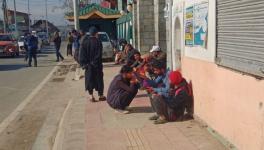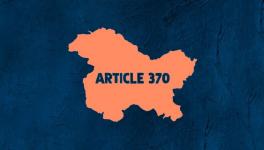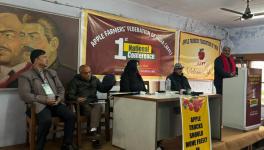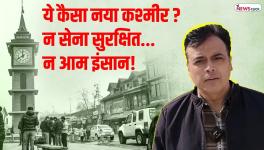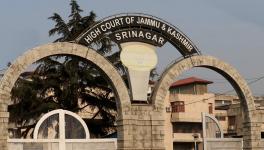Children in Kashmir Left Scarred by ‘Arbitrary Detentions’
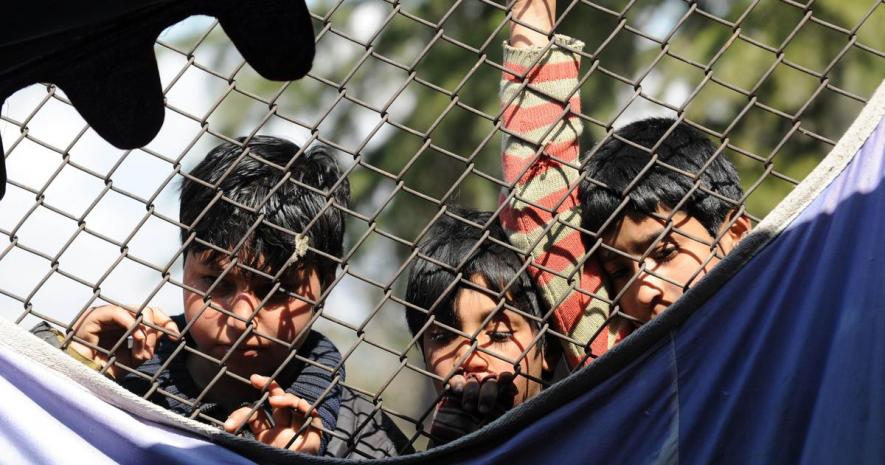
Representational Image. Image Courtesy: scroll.in
Srinagar: A week has passed since Junaid is back home, terrified. He has, since then, avoided leaving the house or the sight of his family again. The 14-year-old had to spend six days, according to his family, inside a “dark cell” of a police station before he was released.
“I was riding my bicycle when they took me,” Junaid says.
He was picked up by four police personnel in civvies who, according to him, were driving a private vehicle. He was later shifted into a police van and taken to a local police station where he was reportedly kept for six consecutive days.
Back home, Junaid’s father had no clue about what had happened. The locality, where the family lives, on the outskirts of Srinagar is relatively much calmer than the neighbouring areas. In the last three months of severe clampdown and subsequent civilian shutdown in the wake of abrogation of Article 370 and bifurcation of Jammu and Kashmir into two union territories, no major violence or protests were reported from this area.
After some time, Junaid’s neighbour came running to his father, informing him about his son’s arrest by the police.
The neighbour’s cousin is almost of the same age as Junaid. According to him, the policemen in civvies had also picked up his cousin as well around the same time. “We had sent him to buy meat for the dinner,” the neighbour told NewsClick.
Including Junaid, three others were picked up by police from the area, who are in their early-teens, preparing for class VIII and Class IX annual examinations.
Junaid’s father found his cycle lying on the road. Suddenly, the entire locality was shaken and many including the family members of the detained children, went to the police station. The police, however, did not release them. “The police said they are stone-pelters,” a family member of one of the teenagers told NewsClick.
For the teens, especially Junaid, the first night was the most difficult one when the police began the interrogation.
“They were asking us to give names, I did not have any; so, they beat me with cables. They hit my back mostly,” Junaid recalls.
A relative of another detained teenager from the neighbouring locality was furious. They are planning to send his ‘kid brother’ outside the valley. “No one came to his rescue and nobody cares. The police will come again and do the same, they have no accountability,” he said.
Ten persons, however, from the area had to sign a bond on behalf of the teenagers and the residents of the area that there will not be any incident or a sign of protest against the government.
“They have taken our contact numbers and copies of our identity cards. The police said if there is any protest we will be arrested first,” one of the signatories said.
Since August 5, hundreds have been arrested in Kashmir including politicians, lawyers, businessmen, activists, many of them slapped with Public Safety Act (PSA) and shifted to jails outside Jammu and Kashmir. Amongst the arrested are juveniles as young as nine-year-olds, who have been reportedly detained inside police stations.
In its latest report, Amnesty International India termed these detentions arbitrary, which are prohibited under all circumstances. The rights body found that people in Kashmir were not formally detained. They reported, instead, youth from different villages were “picked up by police and army and detained for four to eight days without formal charges”.
“We have documented a clear pattern of authorities using administrative detentions on politicians, activists and anyone likely to hold a dissenting opinion before and after August 5, including women and children,” an official spokesperson of the rights body told NewsClick.
Senior Superintendent of Police (SSP) Srinagar Dr Haseeb Mughal, however, says they have “evidence” against whosoever has been picked up by the police.
“We have sent only repeated offenders and chronic stone-pelters to juvenile homes and in most cases, we have released the youths after counselling them and speaking to their families and community representatives,” SSP Mughal told NewsClick.
Earlier, on the directions of Supreme Court, the Juvenile Justice Committee had submitted a report on the issue of alleged detention of children in Kashmir since August 5.
The 52-page report stated that the authorities in J&K have arrested 144 minors in the erstwhile state. According to the report, a majority of children were arrested from areas like Batamaloo, Soura, Rajbagh, Sadder, Parimpora, Budgam and Pulwama.
Sources in police, however, told NewsClick that in the past three months, more than 500 children were picked up by the police, mostly from the neighbourhoods of Srinagar. A majority of whom, after serving detention, were released after their families or community representatives signed a bond.
The finding was challenged when the matter came up before the apex court bench on November 5 headed by Justice N V Ramana. The committee was asked to file a fresh report and posted the hearing for December 3.
Disclaimer: The names of the children have been changed to protect their identity.
Get the latest reports & analysis with people's perspective on Protests, movements & deep analytical videos, discussions of the current affairs in your Telegram app. Subscribe to NewsClick's Telegram channel & get Real-Time updates on stories, as they get published on our website.











